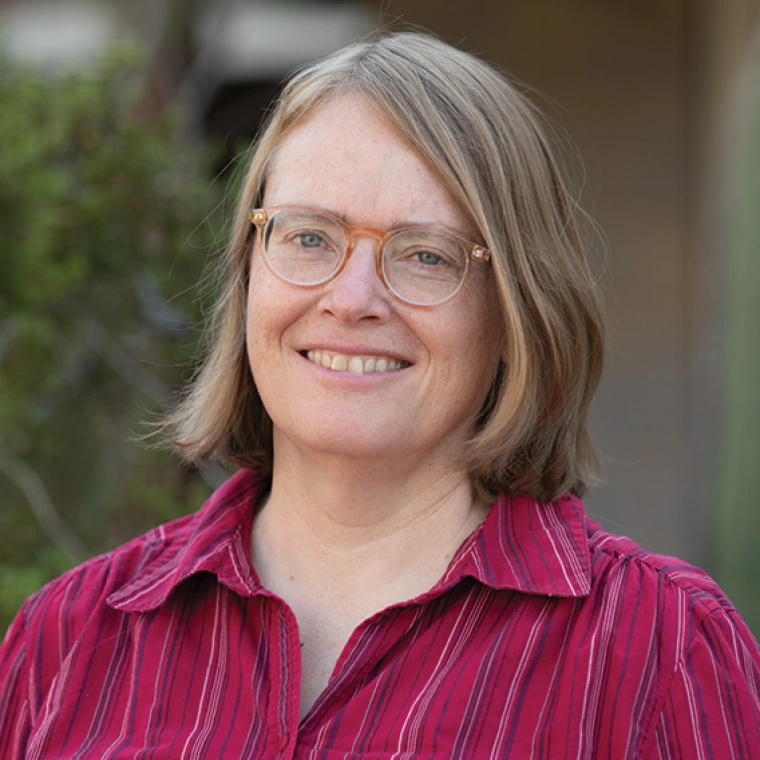Heidi Harley

Communication Building, Room 114B
Research Areas
Links
About Heidi Harley
Heidi Harley investigates how word and sentence structures are built by universal syntactic mechanisms, and how they are interpreted by language-specific morphophonological and conceptual systems.
Research Interests
verbs, suppletion, argument structure, agreement, Hiaki (Yaqui), number
Selected Publications
Harley, H. and Elizabeth Ritter (2002) "Person and number in pronouns: A feature-geometric analysis," Language 78.3, pp. 482-526.
Harley, H. (2002) "Possession and the double object construction," Linguistic Variation Yearbook 2, pp. 31-70.
Folli, R., H. Harley and S. Karimi, (2005) “Determinants of event structure in Persian complex predicates,” Lingua 115.10, 1365-1401
Harley, H. (2006) English Words: A Linguistic Introduction. Oxford: Blackwell.
Folli, R. and H. Harley (2007) “Causation, obligation and argument structure: On the nature of little v,” Linguistic Inquiry 38.2, 197-238
Harley, H. (2013) External arguments and the Mirror Principle: On the distinctness of Voice and v. Lingua 125, 34-57
Harley, H. (2014). "On the identity of roots," (Target article). Theoretical Linguistics 40.3: 225-276.
Harley, H. and Hyun Kyoung Jung. (2015). "In support of the PHAVE analysis of the double object construction." Linguistic Inquiry 46.4, 703-730.
Copley, B and H. Harley. (2015). "A force-theoretic framework for event structure." Linguistics and Philosophy 38.2, 103-158.
Choi, Jae-Hoon and H. Harley. (2019). Locality domains and morphological rules: Phases, heads, node-sprouting and suppletion in Korean honorification. Natural Language and Linguistic Theory 37(4), 1319-1365 https://doi.org/10.1007/s11049-018-09438-3
Folli, Rafaella and H. Harley. (2020). A head-movement approach to Talmy’s typology. Linguistic Inquiry 51.3, 425-470.

